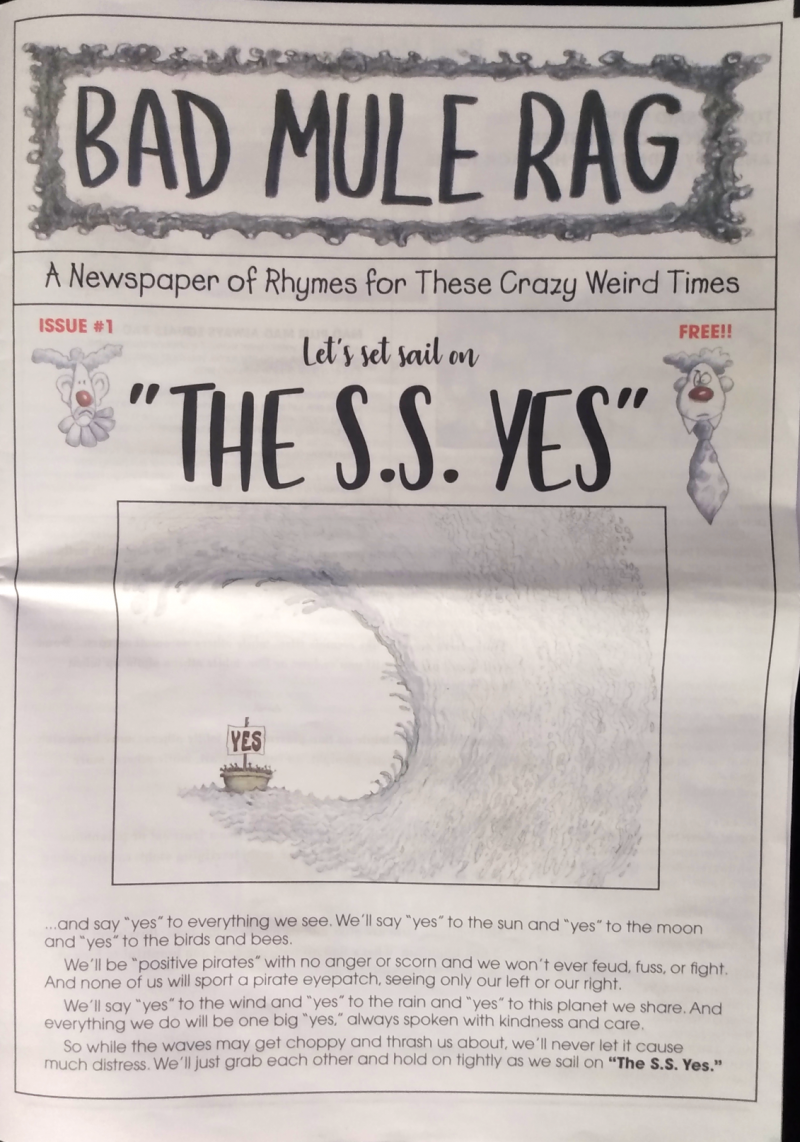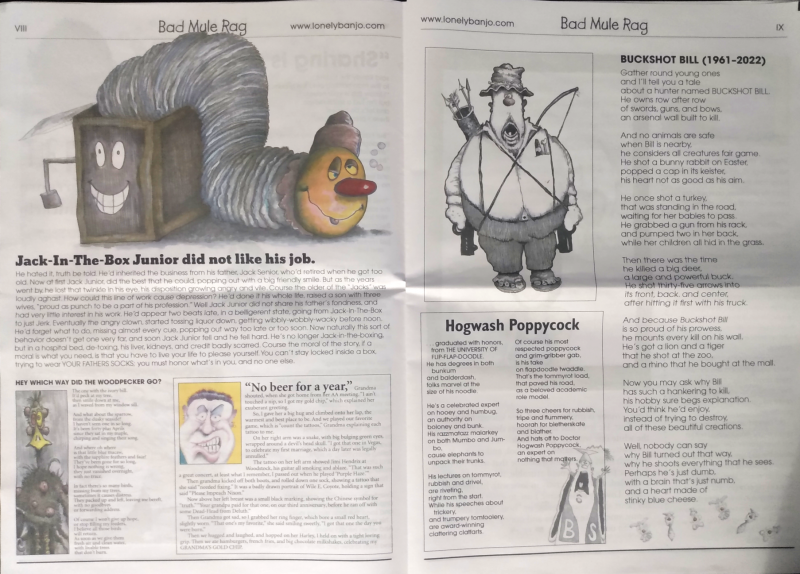I am afraid I must open with an apology to the reader: I do not have an image of this performance to accompany my account. I had obtained permission beforehand to take photographs on the condition of discretion, so I planned to sit on the aisle for the first part of the show before quietly moving to the back of the room and getting a couple of snapshots. A few minutes in, though, Mr. Roberts stopped the show to address a woman recording video in the front row. He lingered for a few uncomfortable moments wondering why she was not simply experiencing the moment before he decided to play it off.
“Have you been recording from the beginning?” No. “Good, I’ll start over.” Cue audience laughter.
The reading took place in a small room where maybe ten rows of folding chairs were set up in a small room, all within spitting distance Roberts, so I reconsidered the discretion of my plan. Not to mention, I have no burning desire to be heckled by a comedian. In short, I lost my nerve. In the absence of documentary evidence, I must ask you to take my word that I was present for this event in its entirety.
The event was Mark Roberts — an Urbana native who “made it” in show business as a comedy writer and producer — returning to his hometown to read his latest work. Roberts regularly takes time to visit and give back to the area, and he maintains an unassuming demeanor when he does. Friday night’s reading was no different, where Roberts read from the Bad Mule Rag, A Newspaper of Rhymes for These Crazy Weird Times he recently authored “for kids and adults alike.”

Photo by Michael O’Boyle.
The performance room in the Cohen building was already half-full when I arrived fifteen minutes early. DJ Nate Jones warmed up the crowd with Stevie Wonder and The Commadores as the room filled and became standing room only. At the appointed hour, Roberts and musician Brian Reedy unceremoniously emerged from the side and sat at the front of a room still buzzing with pre-show chatter. Each opened a copy of the Rag and began flipping until the audience noticed and broke off their conversations to applaud. After a moment, Roberts asked Jones for something upbeat before rising halfway through “Gimme Some Lovin’” by The Spencer Davis Group as Reedy prepared his djembe drum.
The standup comedian turned playwright and television writer-slash-producer has a reputation for raunchiness stemming from his early comedy club acts and his tenure as the lead writer for Two and a Half Men.
The New York Times review of his 2015 play New Country devotes a rather large chunk of column space to discussing this trait and the ways it manifests in his higher-brow work. Similarly, traces of Roberts’ trademark lewdness permeate the Rag. Within the paper’s sheets, sestain poems unfold in the manner of Shel Silverstein, where the grotesque is embraced and the innocuous made grotesque. Moreover, the stuff-of-nightmares illustrations could have been pulled from Terry Gilliam’s Monty Python animations. We are treated to lines like “I must gleefully tell Phil to go fund himself,” spit is rhymed with “… stuff,” and Roberts even drops a c-word — not that one, the other one. The collection works in a time-honored mode of children’s literature: toilet jokes.

Photo by Michael O’Boyle.
The device was saved from triteness by Roberts’ presence. His standup comedy and stage acting chops came through as he easily switched between voices and created lovable personas to deliver his rhymes. We were treated to a gnarly pirate as the evening opened with “Let’s set sail on the S.S. Yes,” a milquetoast boy crushing on his best friend’s mother, and even a gravel-voiced tirade against kombucha for which Mr. Roberts did us the honor of removing his hat. (In case you were wondering, yes, he has always been bald.) The experience was only enhanced by Reedy’s musical antics. A couple of memorable accompaniments include typewriter clicking under the complaints of P. Gregory Persnickety and “Pomp and Circumstance” tooted on a kazoo as the academic credentials of Hogwash Poppycock are enumerated. The silliest moment came, though, when Roberts removed his hat to read the Halloween-y ballad of Corny Cornhusker and Reedy produced two ears of corn which he proceeded to shuck and use on his drum.
Moments of wholesome tomfoolery like this made the evening memorable. I confess I was rather amused at the parade of clever verses, and I even found myself joining the majority of adults in the room busting their stiches at the gags. However, even though the apparent target of the content was children, the three I counted in the room consistently appeared to be unimpressed. I wish I could believe that the allusions to raunchiness went over their heads, but I suspect they are simply desensitized to attempts in this vein that were calculated to bring them into the fold. For all the silly moments, clever rhymes, and the shock value of not-swear words, many of the tales in Rag revolve around a moral or political principle. The reality is that children quickly learn to recognize agitprop and develop immunity to it.
This begs the question: who in the room that Friday evening actually took meaning from the fable of Buckshot Bill, the hunter who loves killing things above all else? Or that of the Silicon Valley gazillionaire determined to make money from a “false information empire?” It might be tempting to dismiss these verses as simplistic parables, but I believe they speak to something deeper. We were promised “Rhymes for These Crazy Weird Times,” and we received the joys of lightness and fun offered by rhyming poetry. Perhaps that is Roberts’ intent: to point us to the humor and absurdity that keeps us moving through the direness around us.
At the end of the reading, Roberts indicated that the Rag would be performed in Rhode Island Beach later this month before returning to Champaign-Urbana. I strongly encourage all lovers of good-natured silliness to keep an ear out for when it comes back.








